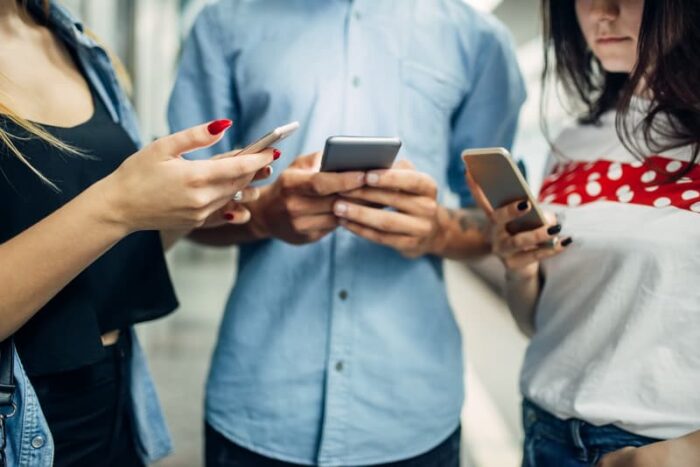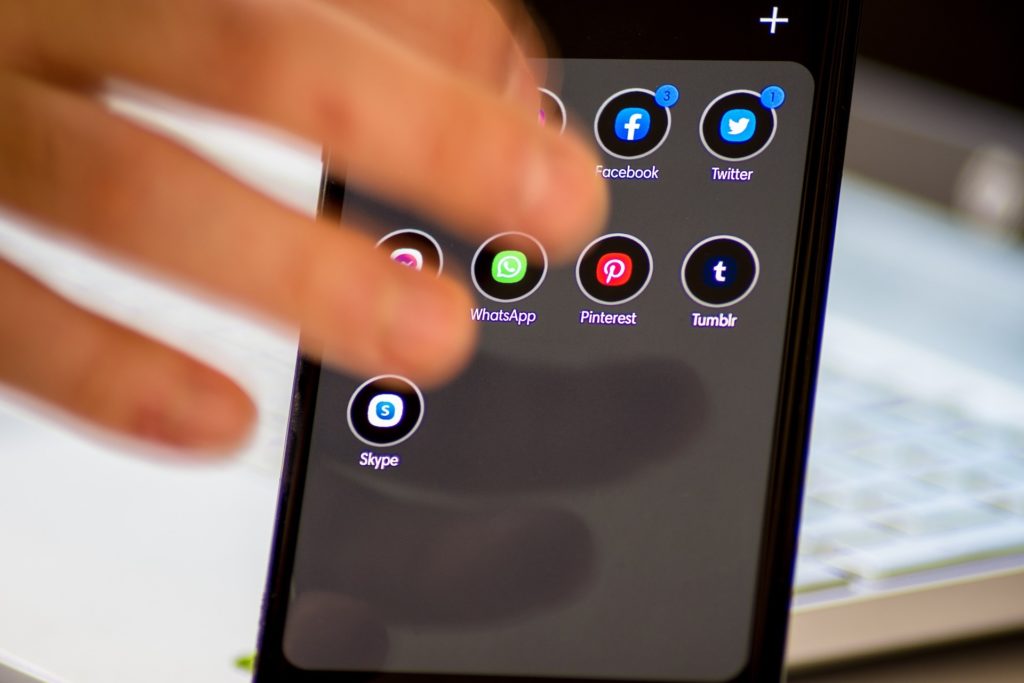- Calls to this hotline are currently being directed to Within Health or Eating Disorder Solutions
- Representatives are standing by 24/7 to help answer your questions
- All calls are confidential and HIPAA compliant
- There is no obligation or cost to call
- Eating Disorder Hope does not receive any commissions or fees dependent upon which provider you select
- Additional treatment providers are located on our directory or samhsa.gov
How Body Editing Apps Can Lead to Eating Disorders

Social media has increased the focus on body shape and size. Some people use body editing applications that edit their photos so that they are closer to what they think they should look like. Research is showing that apps like this may actually be leading to the development of eating disorders.
Social Media & Body Image
Social media platforms like Instagram and TikTok have helped spread diet culture and cemented weight stigma even deeper into our society. This is especially true for adolescents. During the pandemic, the number of children and teens ages 10 to 19 that sought support increased 68%!
This may be because our exposure to messages about our bodies was limited to when we saw the magazines at the grocery store or on TV commercials. With social media, it’s possible to be flooded with this type of media constantly.
But, it’s not just what other people are posting. This is also because these social media companies advertise body editing apps to their users [1]. These features are meant to alter someone’s appearance to make them supposedly more attractive. For example, some of these body editing apps allow users to thin out their waists or add muscle [1].
While this already had a big impact on people’s mental health and self-esteem, the fact that most people spent more time than ever on their phones in the last year is worth mentioning. The COVID-19 pandemic essentially forced people into isolation, which then lead to increased phone use and more time on social media [1].
Now that things are starting to open up again, people aren’t able to hide the way they really look. Individuals are feeling pressured to look the way they looked in the edited photo, even if it’s not realistic.
Social Media, Body Image, & Eating Disorders
Research is showing that the number of people struggling with eating disorders increased dramatically during the last year [1]. While there isn’t just one thing that causes an eating disorder, research shows that the obsession with being thin does have an impact on people [2].
In fact, people have come forward to say that these apps are triggering for them [1]. So whether it develops into an eating disorder or decreases someone’s self-esteem temporarily, this issue is important. Body positive advocates are pushing social media platforms to stop advertising body-altering apps [1].
Negative Body Image & Eating Disorder Prevention
The body image wound runs deep in America. The west is obsessed with being thin and shames people in bigger bodies. Being thin is viewed as the most attractive and only acceptable body shape.
This creates pressure for individuals to look a certain way. This creates a link between appearance and self-worth. This is really dangerous considering that everyone’s body is different, and there isn’t just one way to have a body. The damage is apparent in the fact that about 40-60% of girls in elementary school are worried about their body shape and size [2].
While the apps are definitely concerning, getting rid of apps like this won’t solve the issue. Our society needs to shift the way we talk about health, weight, and appearance. Until that happens, issues like this will continue to pop up.
Here are a few things you can do to take care of yourself while using social media:
- Follow body positive accounts like @bodyposipanda or @bodyimage_therapist
- Unfollow accounts that are triggering or promote disordered eating behaviors
- Check in with yourself before you get on. If you’re feeling sad or stressed, you might be more susceptible to feeling bad about yourself from things you see while you’re online
- Think critically about what you see online. A lot of the time, the images that are shown to us are put out there by a company trying to sell you something. They benefit from you feeling insecure.
While these things are kind of like putting a band-aid on a gaping wound, it’s better than nothing. Until there are big changes in our society, taking steps to protect yourself from the distorted and harmful things in media can help.
Resources:
[1] Criddle, C. (2021, March 27). Body-editing apps on TikTok ‘trigger eating disorders’. BBC News. https://www.bbc.com/news/technology-56503546 [2] National Eating Disorders Association. (2021). Body Image & Eating Disorders. https://www.nationaleatingdisorders.org/body-image-eating-disordersAbout the Author:
 Samantha Bothwell, LMFT, is a licensed Marriage and Family Therapist, writer, explorer, and lipstick aficionado. She became a therapist after doing her own healing work so she could become whole after spending many years living with her mind and body disconnected. She has focused her clinical work to support the healing process of survivors of sexual violence and eating disorders. She is passionate about guiding people in their return to their truest Self so they can live their most authentic, peaceful life.
Samantha Bothwell, LMFT, is a licensed Marriage and Family Therapist, writer, explorer, and lipstick aficionado. She became a therapist after doing her own healing work so she could become whole after spending many years living with her mind and body disconnected. She has focused her clinical work to support the healing process of survivors of sexual violence and eating disorders. She is passionate about guiding people in their return to their truest Self so they can live their most authentic, peaceful life.
The opinions and views of our guest contributors are shared to provide a broad perspective on eating disorders. These are not necessarily the views of Eating Disorder Hope, but an effort to offer a discussion of various issues by different concerned individuals.
We at Eating Disorder Hope understand that eating disorders result from a combination of environmental and genetic factors. If you or a loved one are suffering from an eating disorder, please know that there is hope for you, and seek immediate professional help.
Published June 25, 2021, on EatingDisorderHope.com
Reviewed & Approved on June 25, 2021, by Jacquelyn Ekern MS, LPC

